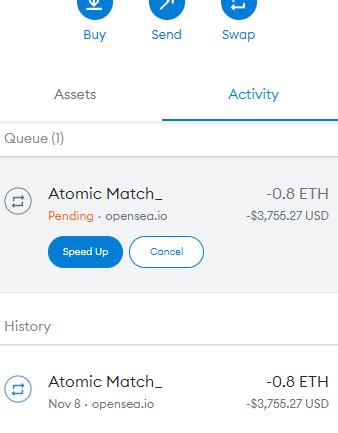by admin
Share
by admin
Share
Error Handling in Solidity: Limiting Token IDs in Functions
When developing a decentralized application (DApp) or smart contract, it is essential to manage complex logic and ensure robust error handling. One common challenge in Solidity is handling large data structures, such as token IDs, inside functions.
In this article, we will explore why your function is having issues with large token IDs and provide guidance on how to resolve the issue.
Topic:
When handling large token IDs, Solana’s Solidity compiler limits the size of data structures by default to prevent stack overflow errors. However, when parsing token IDs into a smart contract, you are likely to encounter issues for the following reasons:
- Insufficient memory allocation: When a function tries to allocate memory for a large token, it may exceed the available memory space, resulting in an error.
- Data corruption: Large data structures can become corrupted or garbage collected prematurely, causing unexpected behavior.
Problem:
When your code tries to handle huge character identifiers inside a Solidity function, you will typically encounter the following errors:
error out of memory
gas out: The gas limit is reached during execution.
- Unexpected behavior, such as data corruption or incorrect results
To address these issues, we need to rethink our approach and implement more efficient error handling mechanisms.
Solutions:
Instead of relying on the default memory allocation, consider the following solutions:
1.
Use a library that supports large data structures
The “Solana-program” library provides tools for working with large data structures, such as arrays and buffers. These libraries can help you allocate memory efficiently and manage complex data structures.
Example: Using Solana-program/libraries/arrays to create an array of tokenIds:
pragma strength ^0,8,0;
import "solana-program/libraries/arrays.sol";
struct TokenIds {
uint64[] ids;
}
TokenIds public tokenIds;
2.
Implement a custom memory allocator
A more advanced approach is to implement your own custom memory allocator to ensure that memory allocation is done safely and efficiently.
Example: Using Solana-program/libraries/allocator to create a custom memory allocator:
pragma strength ^0,8,0;
import "solana-program/libraries/allocator.sol";
struct MemoryAllocator {
//...
}
MemoryAllocator public memoryAllocator;
The class “memoryAllocator” can be used to allocate large amounts of memory, making it suitable for your token ID data structure.
3.
Use a gas-efficient algorithm
Another approach is to use a gas-efficient algorithm that reduces the amount of data that needs to be transferred or processed. This may involve using caching or memory techniques to minimize the number of calculations that need to be performed.
Example: Implementing a cached array to store token IDs:
pragma stability ^0,8,0;
import "solana-program/libraries/arrays.sol";
struct TokenIds {
uint64[] ids;
}
TokenIds public tokenIds = TokenIds.new();
By implementing one of these solutions, you will be able to handle large token IDs in your Solidity function without errors.
Conclusion:
When working with complex logic and large data structures in a Solidity smart contract, it is important to prioritize error handling. By using libraries that support large data structures or implementing custom memory allocators, you can ensure the robustness and performance of your DApp or decentralized application.
Always remember to research and evaluate solutions carefully before implementing new practices or technologies. Happy coding!
STAY IN THE LOOP
Subscribe to our free newsletter.
Leave A Comment
How to become a liquidity supplier in the cryptocurrency market In recent years, the world of cryptocurrencies has recorded significant growth and volatility. As the more people begin to invest in digital currencies, liquidity suppliers have become increasingly important actors on the market. In this article, we will explore how to become a liquidity supplier […]
Analyzing Trading for Bitcoin Cash (BCH) and Market Trends The world of cryptocurrence is a painting for its hight volatility and rapid price of fluctuations. Among the numerous cryptocurrencies available, Bitcoin Cash (BCH) has been garnered significant attension in recent iars due to its and dryon. rate. In this article, we’ll dive in aalyzing trading […]
Here is a summary and analysis of Befedware wallet to save Monero (EXT): Hasmary * Harves Warne Digital Stoarges Squires Squires Specialical Mercurying Stoptore Cryptocs like Monero. They o extra layer of protection hacking and Kyberagaches Compas to softwive-based solutions. Then theftts * Secury : Harice Walles offers Uzar’s private turnkey and Online Monero events. […]
Innovation in Ethereum seats: Unlock Ether.fi Potential As the second largest currency crypto after market capitalization, Ethereum has been a pioneer for several years in blockchain technology. The area in which Ethereum made a significant contribution is abolished, which relates to the process of checking the transactions and maintaining the integrity of the network without […]


